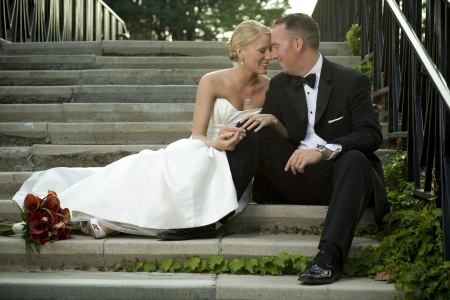[ad_1]
I’m pro-happiness. If you want to sleep with strangers on the first date, it makes no difference to me. If you never want to get married, I’m cool with it. Whatever works for you.
I’m also pro-science. Science illuminates our own biases and hypocrisies.
Science tells us that 50% of kids born to 20-30 year olds are born out of wedlock and that kids born out of wedlock are more likely to struggle in life.
Science tells us that women who engage in the hook up culture are less likely to be happy, on the aggregate, than women who don’t.
Healthy marriages have realistic expectations, healthy communication and a sensitivity to each others’ needs. Everything else is just noise.
Science tells us that there is a 75% divorce rate for couples who marry under the age of 25 and that there is a 10% divorce rate for college educated couples who marry after 30.
Which is why I really appreciate the work being done by Eli Finkel at Northwestern University. According to Finkel, “Perhaps the most striking thing I learned is that the answer to whether today’s marriages are better or worse is “both”: The average marriage today is weaker than the average marriage of yore, in terms of both satisfaction and divorce rate, but the best marriages today are much stronger, in terms of both satisfaction and personal well-being, than the best marriages of yore.
Consider, for example, that while the divorce rate has settled since the early 1980s at around 45 percent, even those marriages that have remained intact have generally become less satisfying. At the same time, consider the findings of a recent analysis, led by the University of Missouri researcher Christine M. Proulx, of 14 longitudinal studies between 1979 and 2002 that concerned marital quality and personal well-being. In addition to showing that marital quality uniformly predicts better personal well-being (unsurprisingly, happier marriages make happier people), the analysis revealed that this effect has become much stronger over time. The gap between the benefits of good and mediocre marriages has increased.”
To sum up, happy marriages make happier people. Dissatisfying marriages make for unhappier people. Sounds like common sense, but common sense goes out the window when you’re talking about something as emotional as love.
When I get emails from angry women who complain that men suck, marriage sucks, and nobody’s happy, what they’re really saying is that THEIR man sucked, THEIR marriage sucks and THEIR friends chose bad husbands, and therefore men and marriage should be avoided. This is a false conclusion based on limited evidence.
Remember, a happy marriage makes people happier than being alone. So how does one find a happy marriage? Is it just a happy accident? Not at all. Everything I do as an online dating coach is supposed to lead you down that path – including taking a (slightly) longer time to have sex, a longer time to get engaged, and a longer time to assess whether you not only have chemistry, but long-term compatibility as well.
For some folks, that’s really hard, because they don’t want to wait. They want to have sex NOW. They want to fall in love NOW. They want to get married NOW. And they’ll deal with the consequences later. Unfortunately, those consequences are a 45% divorce rate and a lot of unhappy marriages – all due to a lack of patience, understanding, and realistic expectations about what a marriage (and one human being) can realistically provide.
Some folks don’t want to wait. They want to have sex NOW. They want to fall in love NOW. They want to get married NOW. And they’ll deal with the consequences later.
According to the article, “Since around 1965, we have been living in the era of the self-expressive marriage. Americans now look to marriage increasingly for self-discovery, self-esteem and personal growth. Fueled by the countercultural currents of the 1960s, they have come to view marriage less as an essential institution and more as an elective means of achieving personal fulfillment. “You make me want to be a better man,” from the 1997 movie “As Good as It Gets,” could serve as this era’s marriage ideal. In the words of the sociologist Robert N. Bellah, love has become, in good part, “the mutual exploration of infinitely rich, complex and exciting selves.”
In short, our needs have changed, and as they’ve changed, marriage has fallen short for many people who don’t address those changes.
“Americans are investing less in their marriages – to the detriment of those relationships…Relative to Americans in 1975, Americans in 2003 spent much less time alone with their spouses. Among spouses without children, weekly spousal time declined to 26 hours per week from 35 hours, and much of this decline resulted from an increase in hours spent at work. Among spouses with children at home, spousal time declined to 9 hours per week from 13, and much of this decline resulted from an increase in time-intensive parenting.”
Finkel’s suggested solution? “First and foremost, couples can choose to invest more time and energy in their marriage, perhaps by altering how they use whatever shared leisure time is available. But if couples lack the time and energy, they might consider adjusting their expectations, perhaps by focusing on cultivating an affectionate bond without trying to facilitate each other’s self-actualization.”
This is why healthy marriages aren’t based on the “Eat, Pray, Love” model. Elizabeth Gilbert even acknowledged that herself in her follow-up book, “Committed.” Healthy marriages have realistic expectations, healthy communication and a sensitivity to each others’ needs. Everything else is just noise.
Your thoughts, below, are appreciated.
[ad_2]
www.evanmarckatz.com







